While Vancouver was blessed with the most spectacular playground a runner might ever dream of, South Africa has also delivered memorable—and at times challenging—trail runs. Whether it was running into the sunset on a deserted Mpumalanga hill, up and down Table Mountain the long, arduous way, or through the entire length of the Cape of Good Hope, the memories are sweet and sweaty.
SANParks are definitely not runner-friendly, though; between predation and regulation, there is no margin left. However having booked our last night of the trip at a private game reserve that was—at least on paper—carnivore-free, we would be in uncharted territory and I had high hopes of escaping into the wild with my Asics and not much else.
Our drive south from Mokala was uneventful, the weather steady and warming up gradually. We fueled up before entering Beaufort West, gateway to the mountainous Karoo National Park along which was nestled our destination, the Ko-Ka Tsara Bush Camp.
Truth be told, I have mixed feelings about the bustling little town of Beaufort West; we were stopped by cops many years ago because of the unconventional—a.k.a. illegal—font of our old license plates, a fatherly eccentricity we had learned to live with. While the incident had turned out remarkably well, I have always been nervous crossing town after that.
About halfway through, my fears suddenly appeared confirmed. A few police cars materialized and we were waved down. Taking a deep breath I readied myself for the unexpected. Sure, we sported impeccable plates this time around but unfortunately, positions of power and low income rarely combine into a pleasant mix and I cannot say I much trust the SA police force, possibly out of prejudice rather than experience.
A most respectful cop approached and greeted us, however, asking for my driver’s license and reassuring us this was a simple random checkpoint. He did not flinch when I presented my holographic New York State ID, inspected it briefly, handed it back and wished us a good day—and may we drive safely. Second deep breath. Maybe our Beaufort West debt would now be redeemed.He did not flinch when I presented my holographic New York State ID, inspected it briefly, handed it back and wished us a good day
We swiftly evacuated town and drove into the mountains next to the National Park. Our destination was not very far now and I knew from having studied Google Maps in satellite view—a twenty-first century miracle that would have enchanted me as a teenager and which to this day I try never to take for granted—that the thirty thousand-acre private reserve would be huddled against an outcropping facing the main Nuweweld mountain range.
Soon, a deep and narrow valley extended ahead and below us, but the road refused to drop and remained high on the slope. A modern-looking gate appeared on the right. Along with our reservation we had been issued a numeric code and punched it onto a keypad, the unattended barrier sliding open for us. Eyebrows were raised. This might have been the middle of nowhere but there was very little difference between that gate and many I had seen guarding luxurious estates in Grand Cayman or Antibes.
A dirt path hugged the contour as it eased into the property. Almost immediately, we were greeted by a few giraffes grazing on both sides. Some were bolder and were acrobatically clinging to the steep terrain, having arguably ventured where no one has grazed before and lucked out on some utter delicacy. Further down into the flat part of the valley, a modest herd of springbok was watching us as a single entity, its many eyes filled with a mix of carelessness and studied resolve.
The landscape was a bit lunar. We drove a few kilometers through thickening vegetation but dry dust was everywhere and plants looked thirsty. Eventually, the compound emerged from behind trees. A row of bungalows was fronted by a large circle of neat grass, juicily green yet again, right at the foot of the rocky hill. Far above, out of sight, the road traveled to the north. Further on, a large house and a few utilitarian farm buildings, and a parking sign. Stopping in the shade of a tall tree we got out and stretched, greeted by our hostess who expectantly came out of a small office; I had given her an approximate arrival time which we had not missed by any unforgivable amount despite unexpected road delays.
She handed us keys and whooshed us towards our place on the lawn, explaining apologetically that some work was being done by outsiders on the thatch roof near the swimming pool and the bar would be locked, but we still had access—as if that had been a quintessential part of the premises’ appeal. We could drive the Landcruiser around to the back and park next to the bungalow. Sam the white lab would meet us there. The jab at the workers might have been racial, and it might not, we were not sure.
That access road behind the bungalows was narrower than a generous Brooklyn bike lane but I managed to ease the Landcruiser into her allotted space and we performed our last offload of the trip, Sam attending dutifully. As it would turn out, the lab was not so much of a people lover as a clever entrepreneur. Opportunist by nature, he was going to squeeze every bit of sympathy out of us and move on next door, in a well rehearsed, closed-loop ballet.
Cozy and well designed, the bungalow was basically a large single room with a small kitchen space at the back next to a—thankfully—enclosed bathroom, contrary to the careless layout of the milk farm’s accomodations. Catering to families, a short mezzanine had been arranged with a couple of single beds right above the deep end of the room, accessible via a steep rudimentary ladder. Outside, Vervet monkeys played in the trees but again kept their distance, possibly aware of canine hazard.
Seizing my chance, I put shorts on, laced my running shoes, threw a hat on my nugget, grabbed a camera and a Gu, and told Marie not to worry—nothing out there was interested in eating me. Doubling back in the direction we had come from, I launched into an easy run, figuring the offloading operations would have served as a warm up.
The road was flanked by thick vegetation with zero visibility to the side. A short story I had read many decades ago in the French magazine Planète1 was swirling in my head. It had been the tale of mankind’s first encounter with extraterrestrials, and the initial absolute failure to communicate. The visitors had offered us a book in a strange language and believing it to be the key to their culture, our linguists had spent month trying to translate the title. Eventually, after a breakthrough, it was revealed that the book was called “How to serve man” (Comment servir l’homme). Earthlings rejoiced and welcomed the obedient alien race to earth, and the translation efforts continued. A few more months went by and eventually, once the aliens had settled in, we realized they had given us their recipe book…
It is one thing to know that there are no leopards around, it is another entirely to believe it, fences often being as easy to jump as it is for us to open the fridge when hungry. So I played cool but kept my radar on.
Within minutes of starting the run, a sobering altitude reminder chimed in via my surprised lungs. Running three thousand feet above sea level is by no means like climbing Everest but the difference with my seaside weekly route was clearly felt and compounded by a day’s driving which, while not the most strenuous exercise, leaves one’s legs heavy with lassitude.
Paying more attention to my steps than I ever would in New York, both to avoid twisting an ankle on the uneven stony surface and to make sure I did not run over a snake, some of which can be rather nefarious in that part of the world, I sought a rhythm and tuned into the bush.
This reminded me of the magnificent trail run in Mpumalanga, with a twist. Golden hour in both cases but where I had been climbing towards the light, I now ran at the bottom of a valley, surrounded by tall ridges which would eventually eclipse the sun’s orange glow. Same shortness of breath, same exhilarating feeling of absolute freedom and careless abandon to the moment.
Suddenly the long, familiar necks I had been seeking poked through the vegetation and watchful eyes began to observe my approach with weary reserve. While the animals here had to be somewhat accustomed to a hunting-less human presence, I theorized they would mostly have been acquainted with the regular appearance of vehicles and the loud sound and foul smell that betray the arriving monster long before it materializes.
Yours truly, on the other hand, jogging stealthily and only rolling the occasional small stone on the path, the alien stench of petrol replaced by mild sweat and a probable cocktail of message-carrying hormones, must have presented a rather new experience.
My proximity was tolerated with varying degrees of patience and when I sensed that the giraffes were nearing the threshold of their fight or flight zone, I slowed down to a walk, and finally stopped, trying to prevent my panting from translating to a threat. They were very close now, closer than I had been from them at the fig farm the previous year—except maybe on that inquisitive nighttime visit when we stared at each other through a mere window.
Unwilling to stay long enough that I would lose the beat, I indulged in a few bad selfies and pushed on, seeking the herd of bokkies we had spotted on our way in. But those had moved away from the road and were no more than specs of brown fur against a brown dry veld.
I grinned, picturing myself squeezed into a New York sardine can called the F train, leaving work along with schools of deboned commuters, wishing we lay in oil to dampen the train’s jerky motion. Memories of African immensity would keep me dreaming, then, but daily squeaky voices, seeking fortune in a hand, would interrupt my reverie and proclaim loudly, owning the stage: “Ladies and Gentlemen…” And I would remember the trail and smile inwardly, oblivious to the eight million pawns and prawns surrounding me.
Reaching the main gate much sooner that I had expected, I looked down at my watch; under three kilometers from the camp. I now had the option of seeking a true trail up the mountain and venturing further into the wild, never so appealing a prospect when running through snake country since narrow and vegetation-covered trails mean no warning and close range, running along the real road outside the property but this had a lame ring to it, or valiantly turning back.
It was getting late, the day had been long and dinner was calling, so I chose the latter and retraced my steps, saluting the giraffes once more as I ran by. This run would not go down in the annals as either rough or sporty, but it had earned its share of oddness, like traversing a zoo without turnstiles nor cages, and being one of the species. Too soon, I knew, I would be running along the Hudson River, yielding to dogs thinner than their leash and to the scooping slaves that proudly walk them.
When I reached the camp our bungalow was deserted, Marie having gone for a walk and probably borrowed Sam to do so, unless it had been the other way around—Sam apparently knew full well how to control his rental humans. I showered with delight and felt revived and presentable by the time they came back, Sam being instantly rewarded for the tour with a few scrapes of old biltong.
Lounging with our Macs at a wobbly table on the front porch, we spent a while organizing our respective pictures, and I drafted a battle plan for the trip’s story, which incidentally ends with this shaky final post. There was chopped fire wood for the braai but we were missing smaller starter bits and spent a few minutes collecting dry branches in the bushes.
Regular as clockwork, fires were lit at occupied bungalows around us and once again, as our own flames rose into the evening, we felt the pinch of that ancestral sense of belonging, of protection, of being home at the side of a fire, wherever that might be.
Our last dinner was obviously centered around boerewors and Sam begged for his share with wet pleading eyes. Having failed, he moved on to the next fire in a calculated maneuver. We looked at the stars, listened to the night’s whispers and eventually went to bed.
Getting up at dawn, I quietly prepared coffee and gathered a few rusks. The night had been chilly and Marie had used the electric blanket with relief. Before packing up, we finally awarded Sam some leftover sausage. It was gulped more than chewed, as if the offering had been threatening to vanish before acknowledged. The lab then went on his morning begging tour leaving us feeling gratified to at least have been the starting attraction. But apparently having not scored any further on that outing, he came back and passed out by our door. Making a living from tourism can be tough.
I walked over to the office to settle our balance and our host asked if we had seen the giraffes in the night. We had been fast asleep but it appears they had visited the compound as they often did at night. Something about that was both funny and wrong. I wondered if they had a tip jar.
Some six or seven hours remained to get home, we would be there in the early evening, having planned a stop at Alan Nelson’s Wine Estate, a friend of Marie’s family, to stock up on some of our favorite Shiraz to take back to the States.
Even though the drought had already begun, we did not yet suspect Cape Town would soon be dragged into a deep crisis and have to prepare for the unthinkable, the threat of completely running out of water by April 2018.2 The Western Cape skies had been dry for much too long and would remain so as we returned to New York.
For now, oblivious, we settled into Mogashagasha with a sigh of comfort and pointing our wheeled ship towards the southeast, we steered her through an austere Karoo once more. Little did we know that the beloved Landcruiser would soon have to share our love with a tiny yet nimble North American Volkswagen sibling which has yet to be named.
A week later, I was airborne and homeward bound. Marie straggled for a while and eventually I found myself back in Queens, visiting JFK after work to pick her up. I had grabbed a bubble car whose rental for a few hours would not cost more than a cab ride home while being much safer and enjoyable.Little did we know that the beloved Landcruiser would soon have to share our love with a tiny yet nimble North American Volkswagen sibling which has yet to be named
Clearing immigration is now a breeze for U.S. passport holders since the implementation of self-use stations and Marie texted me she was waiting for her luggage, which would take a while as she was arriving on Air France’s A380 like I had. We had split our wine supply in two cases of twelve bottles and brought one back each, something Customs appear completely tolerant of.
When she finally rolled into Terminal 1’s minuscule Arrivals area, I waved Marie to the side of a tight exit funnel and we hugged, feeling whole once again. But I sensed that she was flustered and she pointed down at her wine box. Despite thick cling wrapping at CPT, one of the corners was squashed and a red stain painted a catastrophe.
We hurried outside under the puzzled looks of various arrival hall hustlers, guiltily pushing our trolley while wine dripped on the floor leaving a bloody trail, as though we had been fleeing a crime scene. Grateful for having rented a car, I lead us to the parking lot and we opened the box to assess damage. Wine was everywhere but it turned out only one of the very well wrapped bottles had shattered, possibly as late as when landing on the arrival carrousel. I ran back to the terminal to fetch a couple of New York Times from a kiosk and extricated the intact bottles to wrap them carefully in newspaper sheets, thus avoiding the utter sin of staining the car.
The cardboard box wreckage was dumped into a garbage bin. Unbeknownst to us, a valuable small vial of Marie’s homemade vermouth had managed to escape the rescue operation and remained buried in the box, lost forever to the NYC Department of Sanitation.
We managed to shrug. As our official New York City road signs remind drivers on highways leaving the Brooklyn borough, “fuhggedaboudit”3.
• ♦ •
1. Planète was a French magazine published for a decade from 1961 to 1971 and which centered around a “réalisme fantastique” movement spawned by the book Le matin des magiciens. We had quite a few issues at home, thick as hardcovers, and there I was, six or seven years old, happily reading translated excerpts of the works of Asimov, Clarke, Steinbeck and the like. This is where I discovered the dark short story Flowers for Algernon, well before receiving Cousteau’s beautiful Les requins for my seventh birthday.
2. At the time of initially writing this, things were looking very bad. By the time I publish it, hope has crept back into the picture.
3. The colorful expression, in its multiple phonetic spelling variations, has now been recognized by the Oxford Dictionary as a U.S. colloquialism especially associated with NY and NJ slang!
«The Road to Mokala» Series
Want to read the entire series of stories? Start here
Already reading sequentially?
Previous story: The Road to Mokala, Part 4 – Vermilion, Ochre and Gold
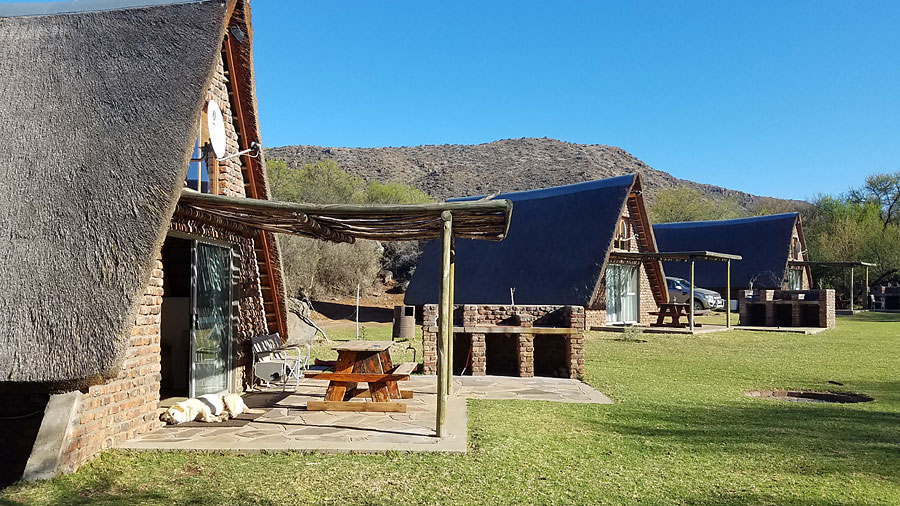
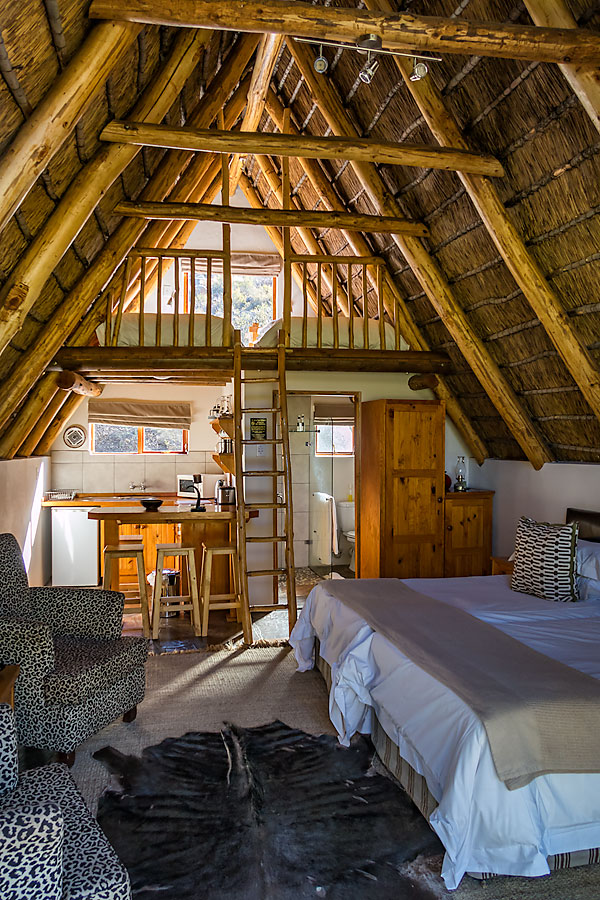
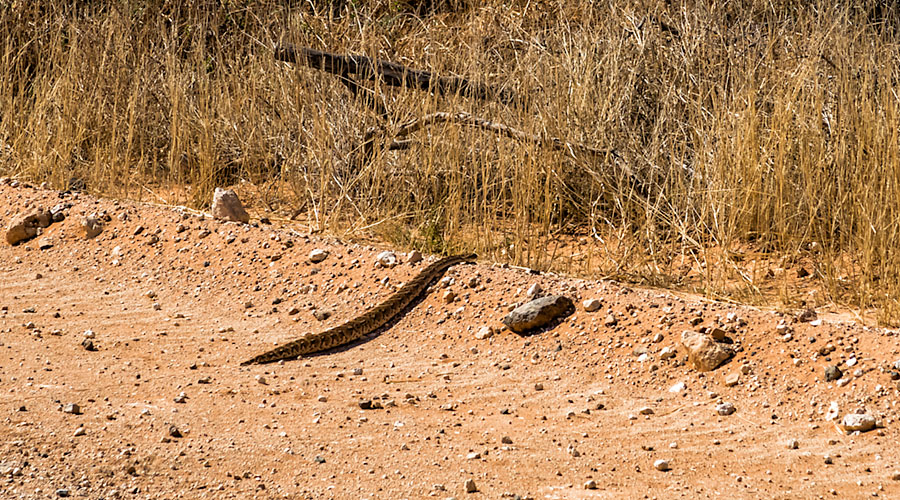
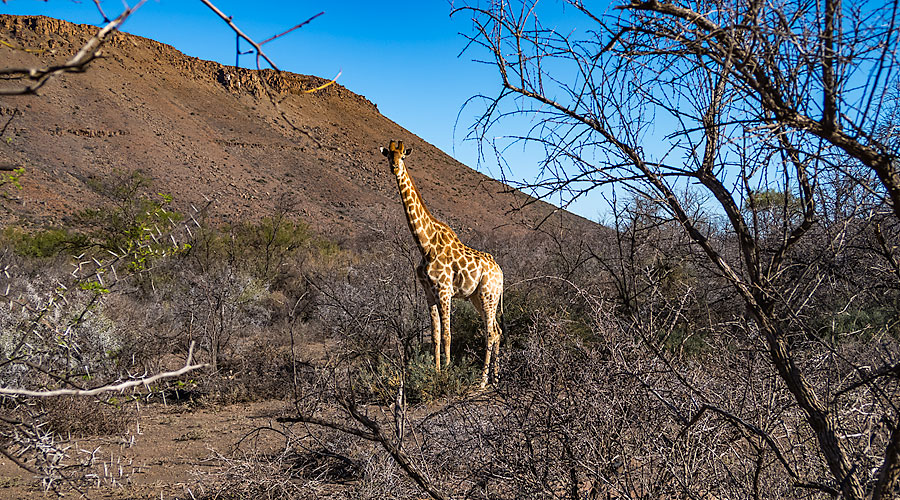
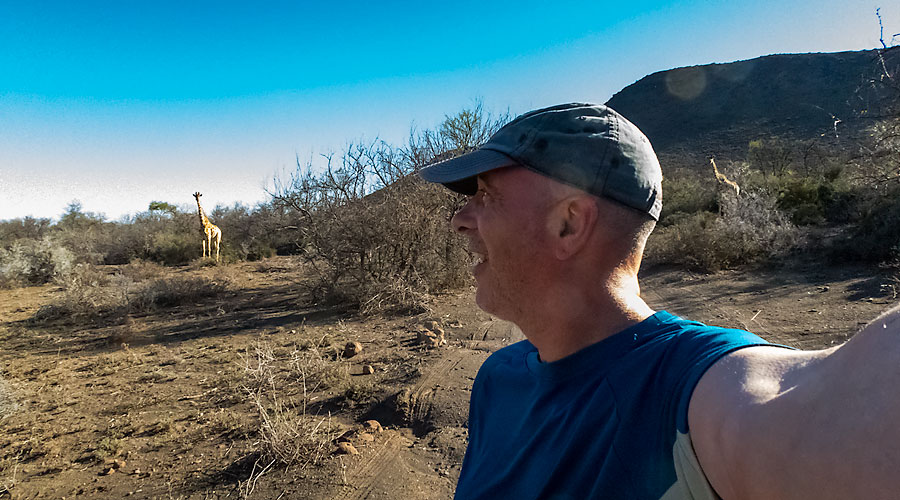
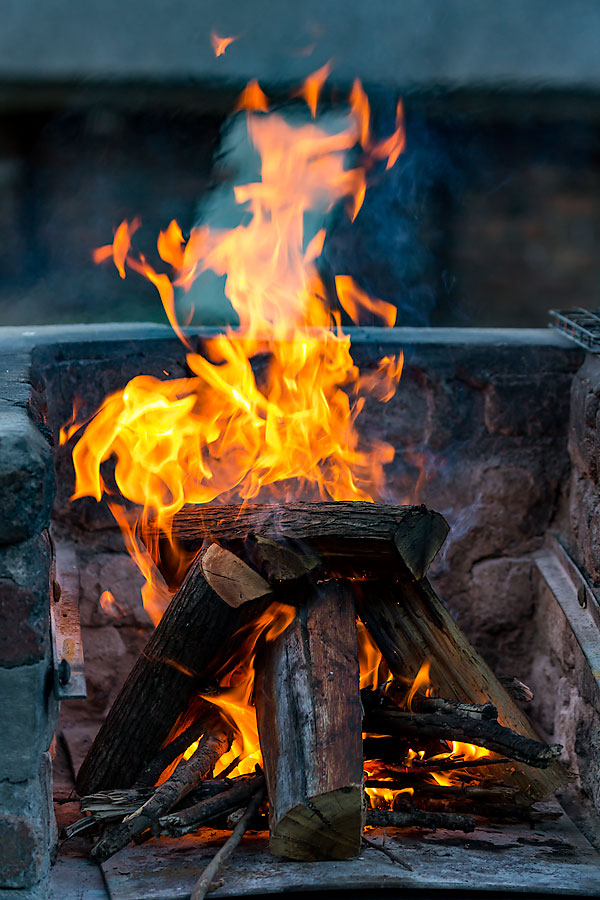
Comments
Marie
Vince
Germaine Versailles